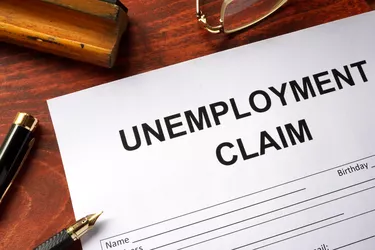
It is illegal to collect unemployment from two states. However, you may have an option to combine wages from two states that you worked in to earn a higher benefit amount each week. Each state's unemployment office has specific procedures for this option. Your benefit amount may not be higher if you combine your wages, however. Speak to a representative from the unemployment office for the state in which you live to find out if this is true for your claim.
Benefits From Two States
Video of the Day
It is fraud to collect unemployment from two states. The money that you claim in one state takes money from the state's unemployment fund that could help someone else who has lost his job. It is illegal, and you may face stiff penalties if unemployment investigation authorities learn of it. Fraud also directly affects employers who have to pay higher unemployment insurance rates.
Video of the Day
Combining Wages From Multiple States
Generally, states will allow you to combine wages from another state in which you have worked within the last 18 months with the wages you earned in the state in which you currently live. This will result in a higher weekly benefit check in most cases. A counselor or representative must review your particular claim to see if this is true.
Procedure for Collecting Unemployment
Contact the unemployment office of the state in which you live to let the staff know that you worked in another state and want to combine your wages from both states into your claim. You may be able to do this during the initial claim filing process, or you may need to do it after you have filed your claim by calling the unemployment office.
If You Move
If you move to another state, you will still be able to file for your benefits weekly, but you must change your address with your former state of residence's unemployment office. You will also need to register for work with the new state's workforce office to continue to be eligible for benefits in your old state. However, recent legislation meant to ease the burden of Americans during unprecedented unemployment claims due to the Coronavirus pandemic, at time of publication, at least 27 states are waiving job search requirements.